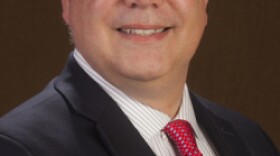Researchers from WKU and Clemson University have teamed up to learn more about the role social media sites play in spreading inaccurate information during crisis situations.
WKU associate professor of communications Blair Thompson recently co-authored a study that was published in the journal Computers in Human Behavior. The study examined the impact social media had on disseminating information following a pair of school shootings that took place at Fern Creek High School in Louisville and Albermarle, North Carolina, on Sept. 30, 2014.
Thompson recently spoke to WKU Public Radio about the research findings. Here are some excerpts from our conversation:
What were you hoping to learn when you set out on this research project?
We knew there would be misinformation—that’s what happens when people go into that (a school shooting) so fast, and they’re posting whatever, and they pull off what somebody else says, and it just kind of builds from there.
I think what’s useful about the research is that we were able to pinpoint the specific areas where the misinformation occurs. We found five or six categories.
There was a lot just related to numbers that were reported, in terms of how many people were shot, and where they were shot, and those kinds of things. But then we saw all kinds of things with names that were just incorrect, from the sex of the shooters and victims, to teachers getting involved—and there was some misinformation also about the reunification sites. And obviously for schools that’s a big concern. If you’ve got parents going to five different places because they’re checking on social media for information, that can obviously contribute to the chaos.
How did you and your colleagues at Clemson find and sift through the thousands of social media posts related to the two high school shootings you were studying?
One of my research partners at Clemson University told me they had just started a Social Media Learning Center. It’s a system where you can essentially name your time frame and put in search terms. It’s actually not much more complicated to use than searching a library system or Google. It culls social media for that time period, and you put in search terms, and it brings up everything that’s been out there.
It looks through Twitter, and Facebook, news releases, and blog posts, and things like that.
Given social media’s prominence in how people receive and transmit information, what can a school—or business, or hospital—do to minimize the spread of inaccurate information on social media related to something like a shooting incident?
Schools need to be really careful about putting any names and numbers out there until they know it’s correct, because (the information) is already flying out there, and even the newscasters are following Twitter, and Facebook, and that kind of stuff. So those things start going up rampant.
You want to make sure you’re not contributing to the misinformation. We saw that with one of the school shootings—one where they did wait, and one where they didn’t. When they waited to release information, the parents in the end were actually more thankful that (the school) didn’t put that information out there. And if you had information out there that was incorrect, that just increased your criticism.
So unless you know your information is accurate, you want to hold off for a bit. In our interviews we learned from some of the school districts that had gone through this that the inclination is that you want to beat the social media and get stuff out there. But once that national media shows up, they’re not going anywhere. If you can tell them to just wait 15 or 20 minutes, you’re going to be much better off in terms of then getting that (information) to them.






